More than 300 LGBT+ people have been killed in Brazil so far this year
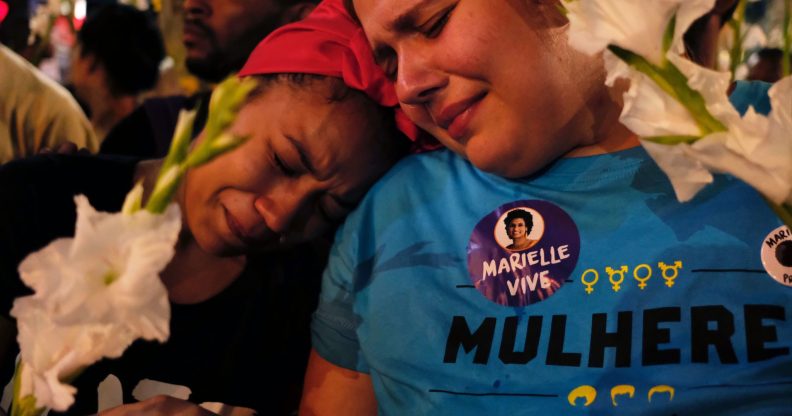
Women cry at a march while mourning activist Marielle Franco (DIEGO HERCULANO/AFP/Getty)
More than 300 people in Brazil have been killed in anti-LGBT hate crimes so far this year.
This number means that the South American country is on track to make 2018 its deadliest-ever year on record for queer people, after there were 387 LGBT+ murder victims in 2017 and a total of 343 the year before.
The survey by Brazil’s oldest LGBT watchdog, Grupo Gay da Bahia, also found that 713 anti-LGBT hate crimes — often in the categories of physical or psychological violence — have been recorded in 2018 up until mid-September.
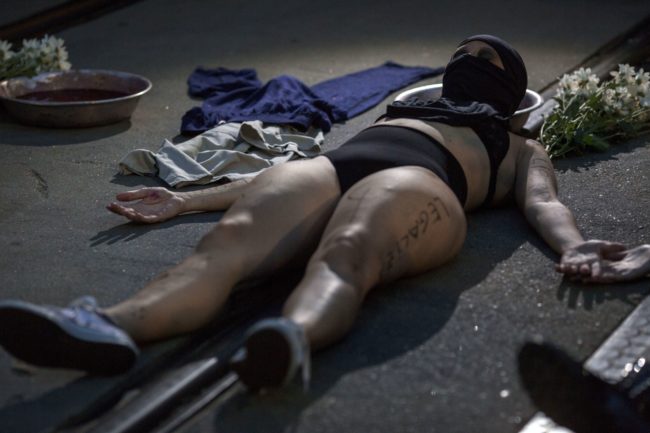
Protesters campaign against LGBT+ murders (MAURO PIMENTEL/AFP/Getty)
One of the murders from this year was that of 38-year-old black, lesbian councilwoman Marielle Franco, who was shot dead in her car in March, sparking thousands to protest in the streets.
Her partner Mônica Benício, who she was planning to marry in 2019, spoke out following the apparent assassination, saying: “I don’t question at all that it was a political crime.
“She was our only black female councillor – a black, lesbian woman from the favelas occupying a position of power that’s predominantly reserved for the white men.”
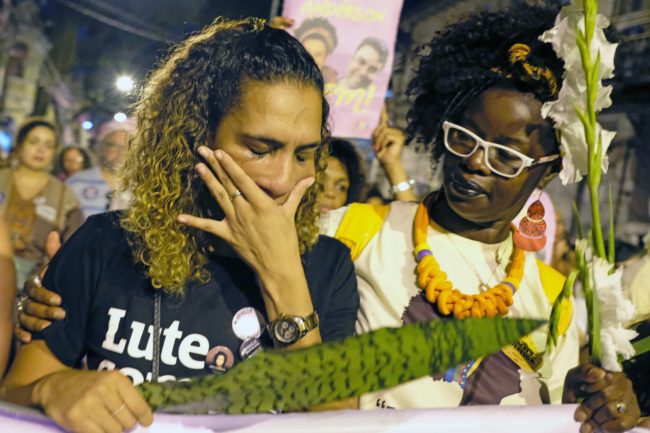
Anielle Silva (left), sister of activist Marielle Franco, cries at a memorial after her murder (DIEGO HERCULANO/AFP/Getty)
The results were revealed as far-right anti-LGBT candidate Jair Bolsonaro — who once said he would prefer to have a dead son over a gay one — leads the presidential polls ahead of October’s general election.
Last year, Grupo Gay da Bahia president Luiz Mott said that the rising levels of violence were partially caused by the growth of and publicity given to ultra-conservative politicians.
And Bolsonaro has risen to prominence on the back of hateful comments, including in 2015 when he said hospital patients should be allowed to reject ‘gay blood.’
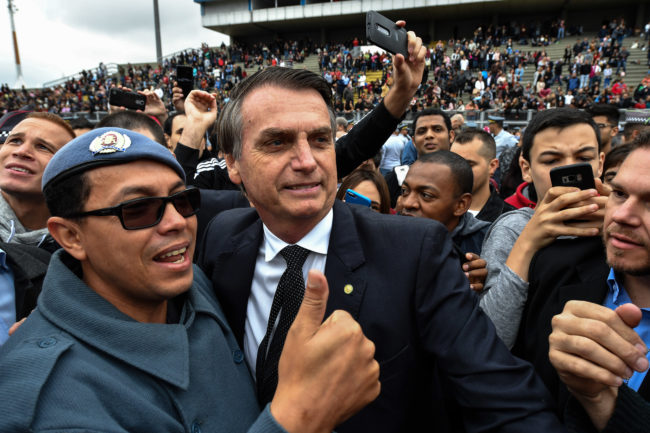
Bolsonaro is the presidential frontrunner (NELSON ALMEIDA/AFP/Getty)
Just last month, he stood by a previous statement that if he saw two men kissing in the street, he would punch them, saying: “I do not kiss my wife on the street.
“Why face society? Why take that into the school? Little children of 6 or 7, watching two men kiss as the government wanted them to do. Is this democracy?” he asked.
He then equated homosexuality to paedophilia, making a link which is historically popular among homophobes and has experienced a resurgence over the past year, thanks to alt-right trolls.
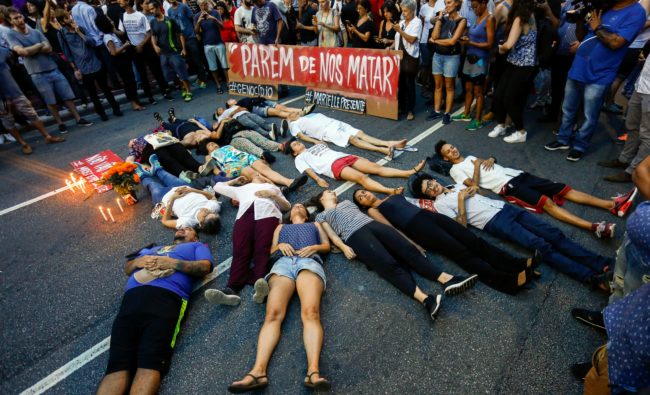
People lie down in protest against LGBT+ deaths, in front of a banner reading: “Stop killing us” (MIGUEL SCHINCARIOL/AFP/Getty)
The politician, who served as an army captain under Brazil’s brutal 21-year-long dictatorship, said: “So let’s respect the paedophile’s right to have sex with a two-year-old? Would that unite [Brazil]?”
His statements have drawn a warning from Stephen Fry, who interviewed Bolsonaro in 2013, when the far-right politician told him that “no father would ever take pride in having a gay son.”
Fry issued a heartfelt appeal to Brazilian voters to reject Bolsonaro, saying: “He lives in a fantasy world of militarism which I find deeply upsetting and frightening.”
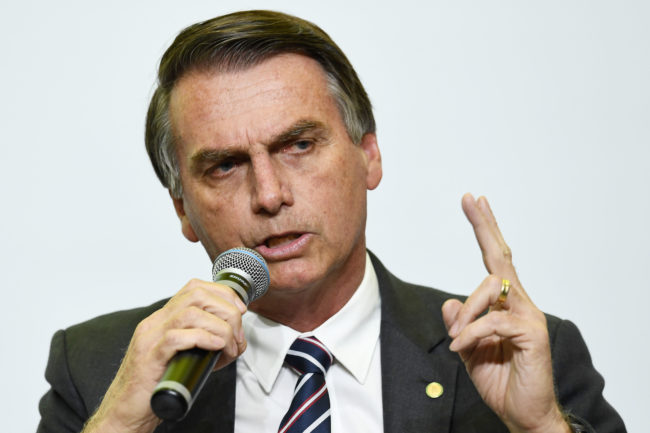
Jair Bolsonaro, presidential candidate for the Social Liberal Party (EVARISTO SA/AFP/Getty)
Referring to Bolsonaro’s divisive rhetoric, Fry added: “The speech he uses against people of colour, women and the LGBTQ community in particular is genuinely terrifying and will result in more broken heads on pavement, more blood spilled, more torture, more killing, more unhappiness, less acceptance, more crying parents. That can’t be right.”
“Surely Brazil is better than this. Brazil is better than Bolsonaro,” Fry concluded.
Dua Lipa and other musicians have also positioned themselves against Bolsonaro, using the #EleNão hashtag which translates as: “Not him.”

